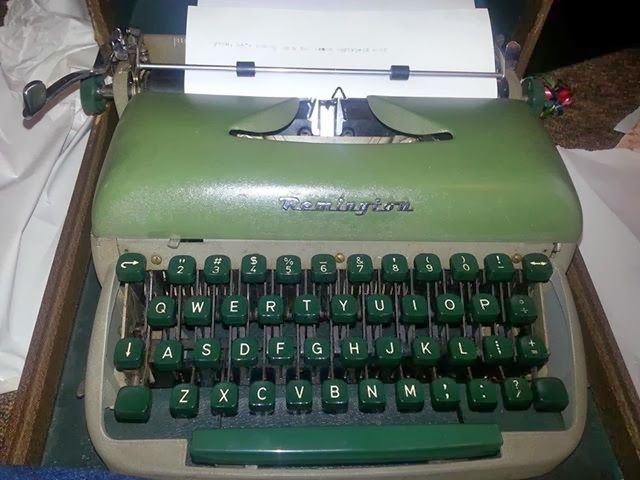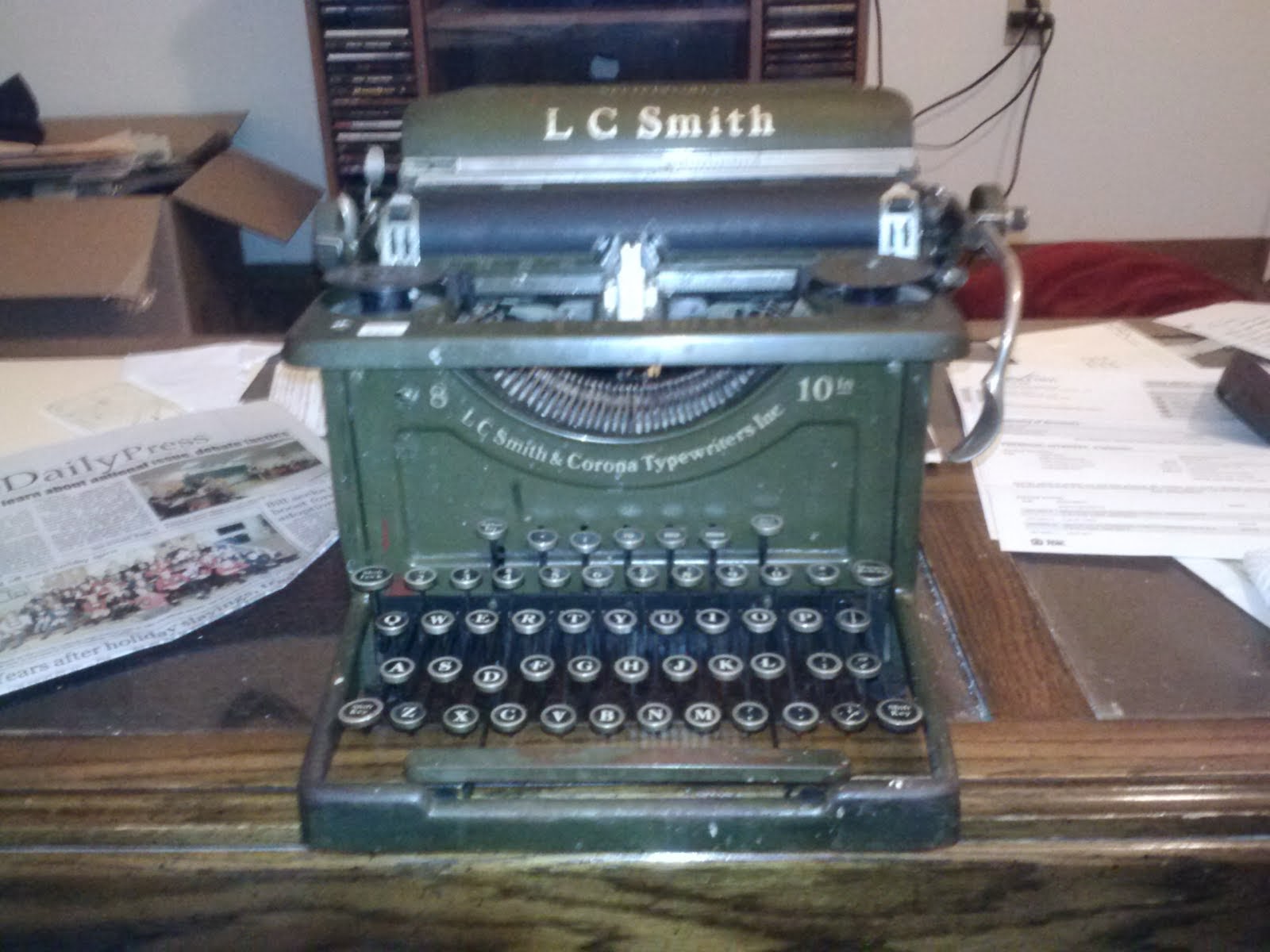My interest in the typewriter stemmed from an interest in the history of my profession. I would chat with a older co-worker at the newspaper office about the days of hot metal type, when cut-and-paste was literally cutting and pasting.
I really fell in love when I was out Christmas shopping and visited Shadows of the Past, a local antique shop. There I found a Remington portable and a L.C. Smith Secretarial Number 8. These two mechanical denizens of a bygone age speak of their purpose through their design.
 |
This Remington portable model still works like a charm.
|
The Remington is compact and lightweight. I can easily pick it up with one hand. It was made for the writer or journalist on the go. It was made to accompany the writer to events, offices and hotel rooms as a faithful and functional companion.
 |
The L.C. Smith Secretarial is a heavy stationary model from around
1934, if my research serves me well. This one has become my
tinkering project.
|
The Smith model is a heavy hunk of metal. It was designed to sit on a desk at a business. When I first put my fingers on the keys, I typed the first thing that popped into my mind. "Space: the final frontier. These are the voyages of the starship Enterprise." It then occurred to me that the designers and users of this machine would not have recognized that phrase.
The Smith needed a few adjustments. First, I needed to find a ribbon for it and wind it onto the metal spools. Universal calculator spool worked, but it makes the type blotchy. It seems that the ribbon is too well inked for how hard the keys strike.
Another problem was that the carriage bell dinged at random while I typed. So I embarked on the journey of some learn-as-you-go repair work. Like any love affair, this led to a great deal of frustration and satisfaction. As I gazed into the working components, I felt like I was looking back through time. I wondered if the last person to service the machine was even still alive.
Those of us who take on this peculiar hobby take on a great challenge indeed. Typewriter repair was not a do-it-yourself project back in the day. Typewriters were expensive machines that required trained professionals for repair and maintenance. Those who performed this task were the forerunners of today's computer tech support.
Today the typewriters survive, but most of the experts and technical manuals are long gone. We typewriter aficionados are left to rediscover this knowledge through our own experience and learning from each other. My hope is that this blog will become one of those valuable resources for those who share my love of typing and tinkering. Unlike the disposable technology of today, these machines were built to last. Let's make sure that the knowledge and skill to maintain them last as well.













